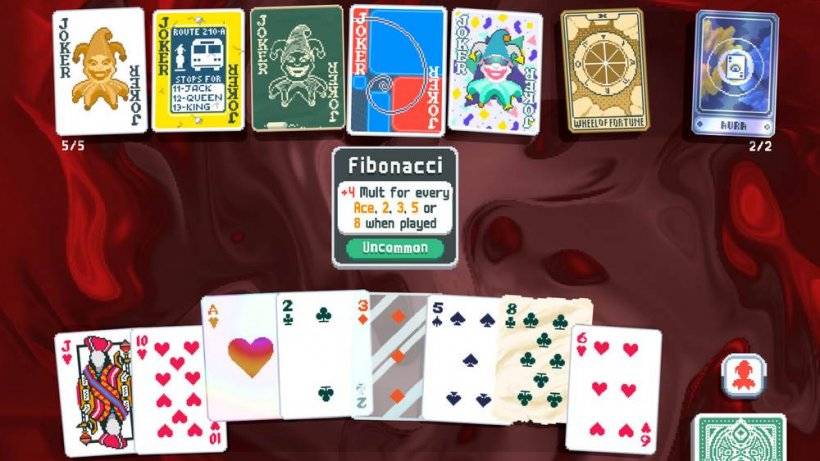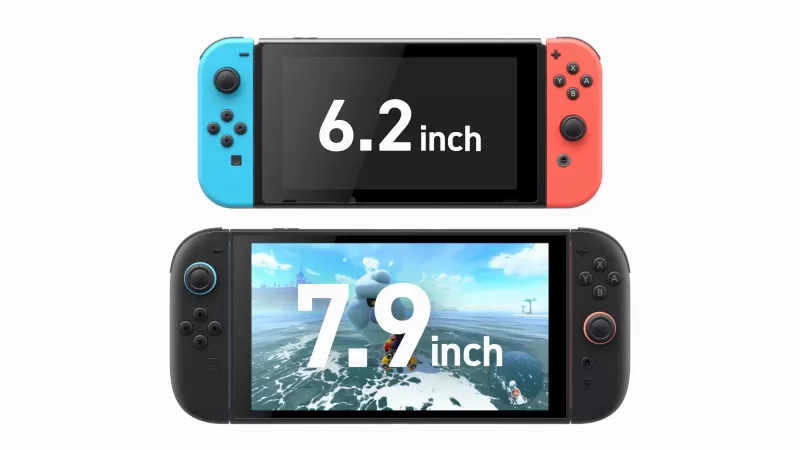It’s the end of the year, and if you're reading this on schedule, it's probably December 29th. Assuming you haven't seen a flurry of other major award wins for Balatro, you're likely thinking of the accolades this unique blend of solitaire, poker, and roguelike deckbuilder has garnered. From Indie and Mobile Game of the Year at The Game Awards to winning Best Mobile Port and Best Digital Board Game at the Pocket Gamer Awards, Balatro's success is undeniable.
However, this success has also sparked confusion and even anger. Comparisons between flashy gameplay videos and Balatro's relatively simple visuals have led some to question its award wins. The bafflement over a seemingly simple deckbuilder achieving such recognition is palpable.
For me, this highlights why Balatro is my personal Game of the Year pick, and why I want to discuss it further. But first, let's acknowledge some other notable games and releases:
Honorable Mentions:
- Vampire Survivors' Castlevania expansion: The long-awaited addition of iconic Castlevania characters is a triumph.
- Squid Game: Unleashed is free for all: A potentially precedent-setting move by Netflix Games, suggesting a focus on attracting new viewers.
- Watch Dogs: Truth audio adventure released: An interesting, albeit unconventional, choice for a mobile title by Ubisoft.
A Mixed Bag of Fun
My personal experience with Balatro has been a mixed bag. While undeniably captivating, I haven't quite mastered it. I've always struggled with detailed statistical comparisons, and Balatro's late-game deck optimization demands have prevented me from completing any runs despite countless hours played.
Despite this, Balatro represents some of the best gaming value I've experienced in years. It's simple, easily accessible, and not overly demanding. While not my perfect time-waster (that title belongs to Vampire Survivors), it's a close contender.
The game boasts attractive visuals and smooth gameplay. For a mere $9.99, you get an engaging roguelike deckbuilder that won't elicit scoffs in public (it might even make you look like a gambling mastermind!). LocalThunk's ability to take a simple concept and elevate it with unique style is commendable. Everything from the calming music to the satisfying sound effects is designed to keep you hooked, yet it does so subtly and honestly.
But you've likely heard all this before, so why am I talking about it? For some, apparently, this isn't enough.

"But it's just a game-!"
Balatro isn't the only game to face criticism this year—Astrobot's Game of the Year win at Big Geoff's awards show faced similar backlash. Ironically, we often get worked up over an awards show we acknowledge as self-important. The point is, the reaction to Balatro reveals a deeper issue in how we perceive games.
Balatro is unapologetically "gamey" in its design and execution. It's colorful and visually appealing without being overly complex or flashy. It lacks the retro aesthetic often seen in indie games and isn't a cutting-edge tech demo. It's worth noting that LocalThunk began this project as a passion project, highlighting the organic growth of many successful indie games.
Yet, Balatro's success confounds many because it isn't a flashy gacha game, nor does it push mobile gaming boundaries. It's not a battle royale featuring anime characters; to some, it's simply "a card game."
And that's precisely what it is—a well-executed card game with a fresh twist. We should judge a game's quality on its execution, not solely on visual fidelity or other superficial elements.
It's What's Inside That Counts
The lesson from Balatro is simple: You don't need groundbreaking graphics or complex mechanics to succeed. This humble deckbuilder has found success across PC, console, and mobile platforms—a feat many developers struggle with.
Now, some might point out that it's not a massive financial success. But considering the likely low development costs, LocalThunk probably enjoys a healthy profit.
Balatro proves that you can create a multiplatform game without needing cross-platform progression or massive multiplayer features. Simplicity and unique style can resonate with players across different platforms.

My own struggles with Balatro also highlight its distinctive appeal. Some players strive for optimal deckbuilding and perfect runs. Others, like me, appreciate its relaxing nature, perfect for downtime.
Ultimately, the point is what we often say when a game like Balatro succeeds: You don't need to be revolutionary to be successful; sometimes, being a bit of a joker is enough.
















